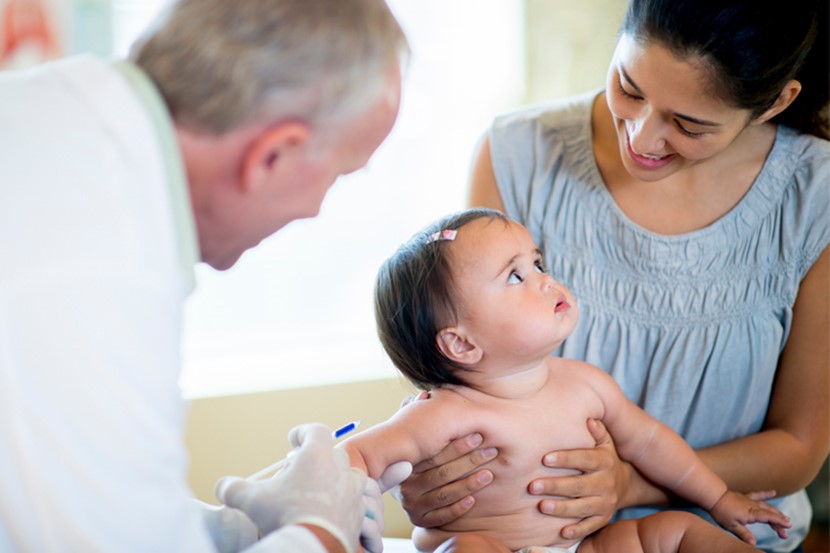Measles vaccine age now 12 months for Auckland babies

Babies aged 12 months and over can now be vaccinated for MMR (measles, mumps, rubella) in Auckland following the region’s outbreak of measles. There have been 104 measles cases in Auckland so far this year.
The Auckland Regional Public Health Service (ARPHS) and Ministry of Health are recommending all 12-month-old children in the region receive their first MMR early to protect them from the highly infectious viral illness. Nearly half of all cases in the outbreak have affected children under five. The ARPHS is also asking GPs to recall all patients under five who have received only one MMR dose.
Here are some important points the Immune Advisory Centre wants parents and pregnant women to know about the vaccination and the disease.
- The MMR vaccine given in New Zealand contains a weakened form of the virus that won’t cause disease in healthy children.
- Most children have a good response after the first dose of the vaccine. A second dose is given to make sure that those who may not have responded quite so well to the first dose are fully protected. This happens at four years of age.
- If your baby is too young to have the MMR vaccine yet, encourage all the close contacts of your baby to check that they have also received two doses of MMR.
- Babies who are travelling overseas can be given a dose of MMR from six months of age. They will need to have two further doses as on the National Immunisation Schedule when they return.
- It is safe to have this vaccine when breastfeeding, but not during pregnancy.
- The vaccine cannot be given to those whose immune system does not work fully: for example, during pregnancy, while taking some medicines, during cancer treatments, or if you have certain medical conditions. These people and babies too young to be vaccinated rely on those around them to be immunised and to prevent the spread of the disease.
- One in seven cases of measles needs hospital treatment and around one in 1000 people die.
- Measles can lead to severe complications, such as pneumonia and brain swelling, and can cause miscarriage or premature birth in pregnant women.
- The effects of measles on the immune system lasts for several years after the infection, putting children at risk from other infectious diseases.
- Measles is infectious before the rash appears and it can take up to 3 weeks after being infected to develop symptoms. One infected person can infect another 18 people.
- Symptoms of measles include a high fever, cough, runny nose, red, watery eyes and a rash of tiny red spots, starts appearing on the head 3-5 days after symptoms begin and spreads across the body.
If anyone in your family shows symptoms of measles, phone Healthline 0800 611 116 or your doctor straight away to make an appointment. Tell them you suspect measles. Stay at home, do not visit anyone or go to the waiting room without talking to the practice first.

